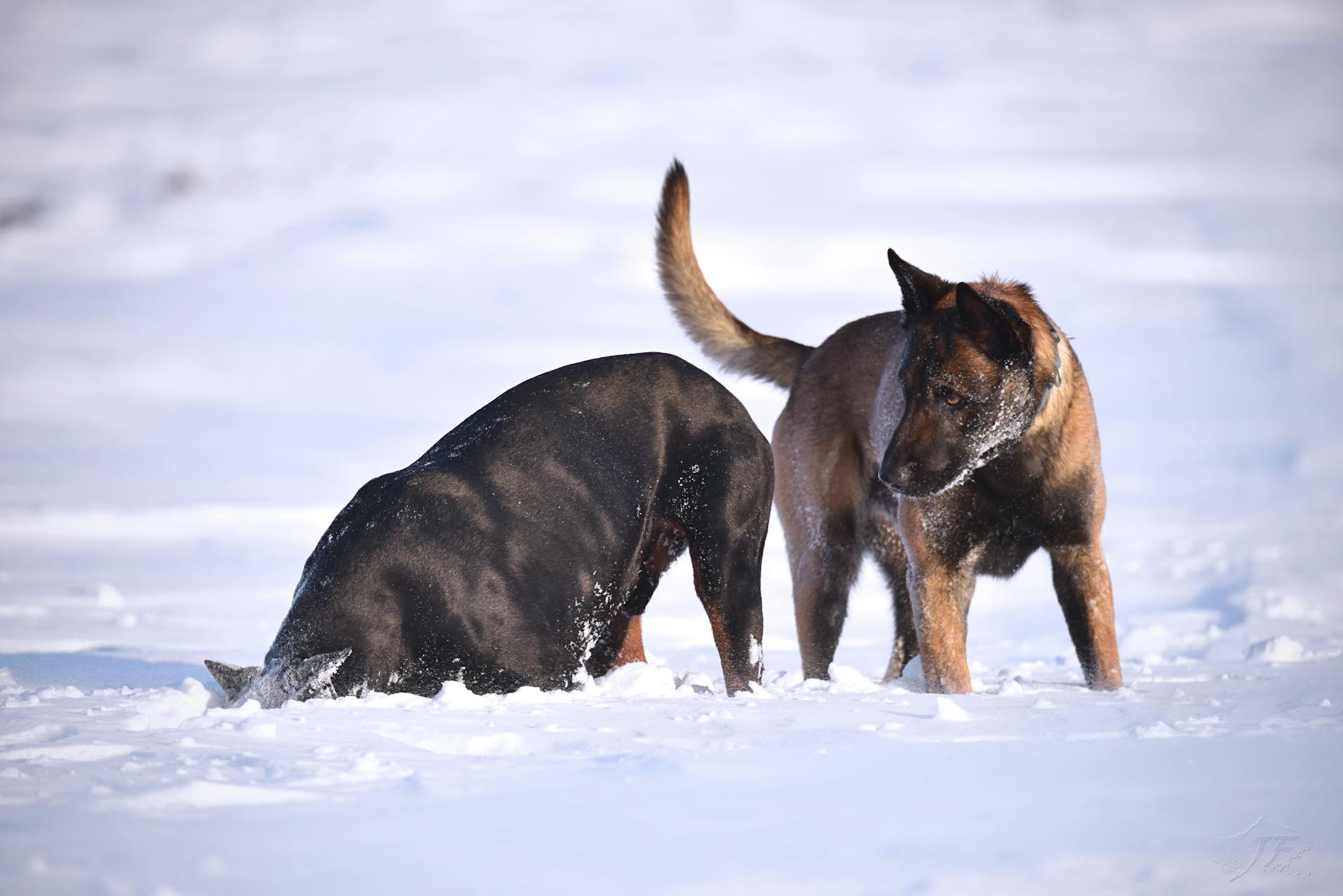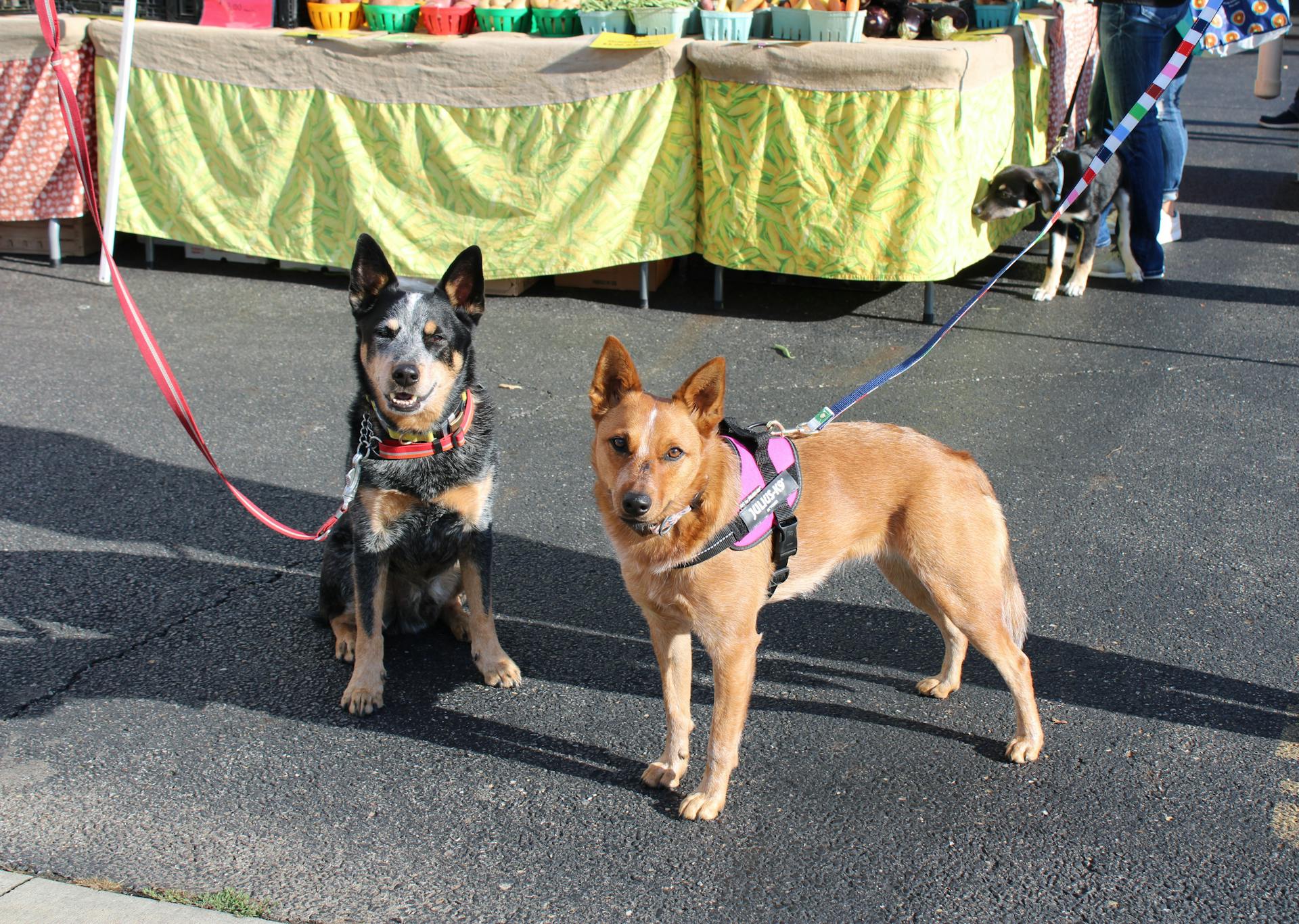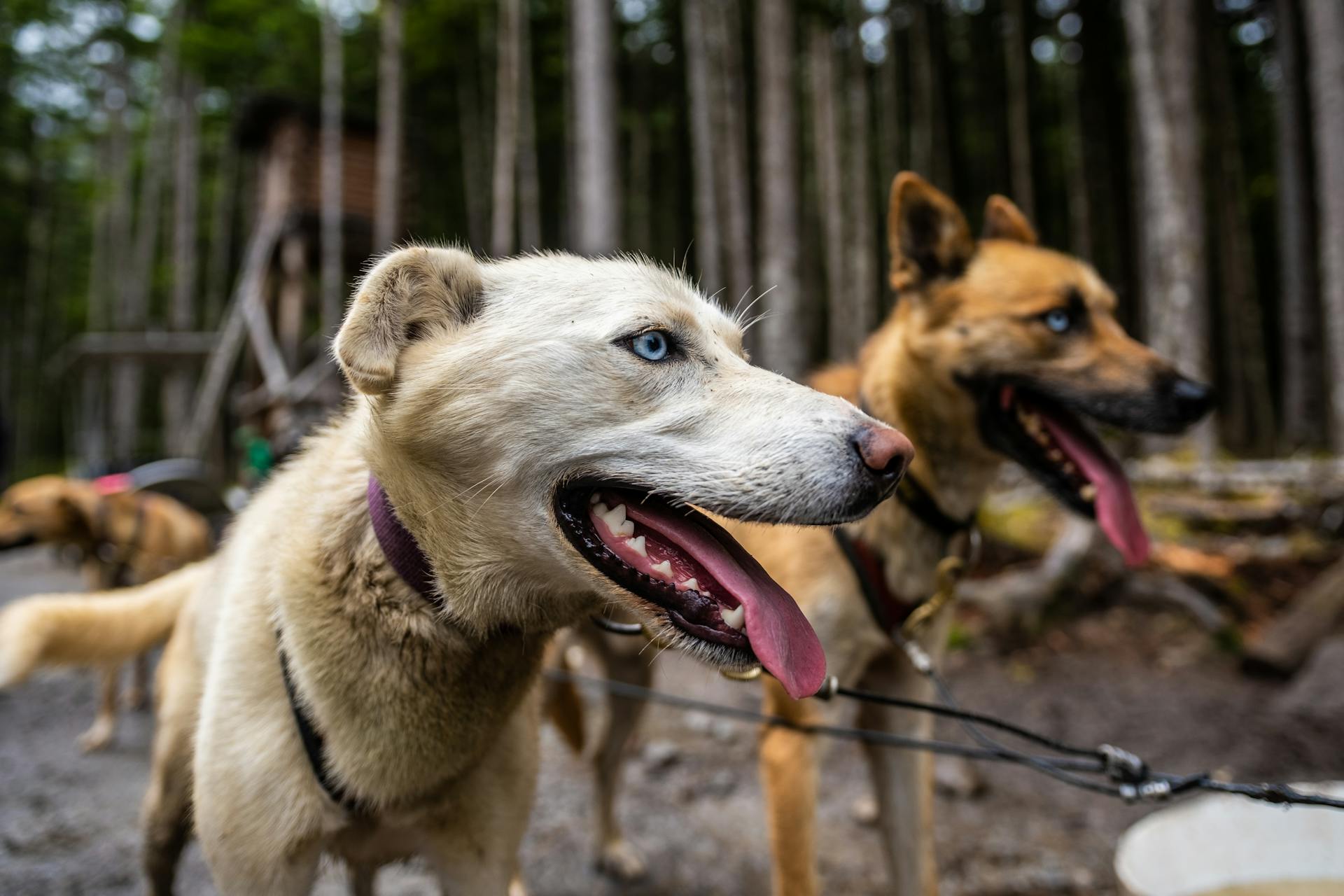
If your dog doesn't like a certain person, it can be a source of stress and anxiety for both you and your pet. This aversion can be due to various reasons, including past experiences, scent recognition, or even genetics.
A dog's sense of smell is 10,000 to 100,000 times more sensitive than a human's, which means they can pick up on subtle scents that might be off-putting to them. This sensitivity is a result of their highly developed olfactory system.
A dog's past experiences can also shape their behavior around certain people. For example, if your dog has had a negative encounter with a particular person, they may associate that person with fear or anxiety.
Suggestion: Why Does My Dog's Urine Smell like a Skunk?
Reasons for Fear
Your dog's fear of a certain person might be rooted in genetics. A timid dog is more likely to produce skittish offspring, so if your dog's parents were fearful, it's possible that they passed on this trait.
See what others are reading: What to Do for Your Dog's Birthday?
A lack of proper socialization as a puppy can also contribute to fear of strangers. Puppies that don't meet a wide variety of people are more likely to develop a fear of people they don't know.
Dogs with a history of abuse may be especially wary of strangers. If your dog has been abused, it's essential to understand that this trauma can lead to long-term fear.
Here are some possible reasons why your dog might be afraid of a certain person:
- Genetics: a timid dog is more likely to produce skittish offspring
- Lack of socialization: puppies that don't meet many people are more likely to fear strangers
- History of abuse: dogs that have been abused may be especially fearful of strangers
Protecting Their Humans
Dogs can be territorial and protective of their humans, especially guarding breeds like mastiffs and herding and terrier breeds. They may react aggressively toward anyone "invading" their space or acting in a way that can be perceived as threatening to their family.
Protective behaviors in dogs don't have to be aggressive, they can be just a sudden or energetic action. For example, a dog may feel the need to defend its human if it sees friendly interactions between its owner and other people.
Dogs can perceive humans as scary if they make any unusual movements or noise, like putting on a hat or opening an umbrella. This can trigger a protective reaction in your dog.
Dogs may also feel jealous about their humans and act possessive if they see friendly interactions between their owner and other people. This is especially true for breeds that are naturally protective and loyal.
Interacting with Others
Dogs are highly attuned to social interactions and can pick up on subtle cues that indicate a person's behavior towards their owner. They can even sense when someone is being rude to their owner, leading to a decrease in their affection towards that person.
A study at Kyoto University found that dogs are more likely to show signs of disliking a person who refused to help their owner. This suggests that dogs are fiercely loyal to their owners and can quickly pick up on any negative behavior towards them.
In fact, dogs are so attuned to their owner's relationships that they can even determine whether a person is trustworthy or not.
Dogs Perceive Features
Dogs perceive some features as more threatening, and it's not just about their instincts.
Dogs are naturally wary of things that obstruct their view, like hats and sunglasses that cover someone's face.
Facial hair can also be off-putting for dogs, for the same reason.
Being tall can be intimidating for dogs, as it can make them feel like they're facing a giant.
Deep voices can also be unsettling for dogs.
Some dogs may be more nervous around adult men specifically because of their taller stature and deeper voices.
Dogs can be particularly put off by direct intense eye contact or staring.
Some dogs may also dislike strong smells, like smoke, but it's not just limited to that – they can also be sensitive to your shampoo, perfume, deodorant, or even the food you ate.
For your interest: What Were You Just Doing with the Dog?
#3 – Interacting with Others
Dogs can tell when someone is being rude to their owner, and it affects their opinion of that person. If a person in your life is regularly rude to you, your dog will decide for themselves they don’t like them.
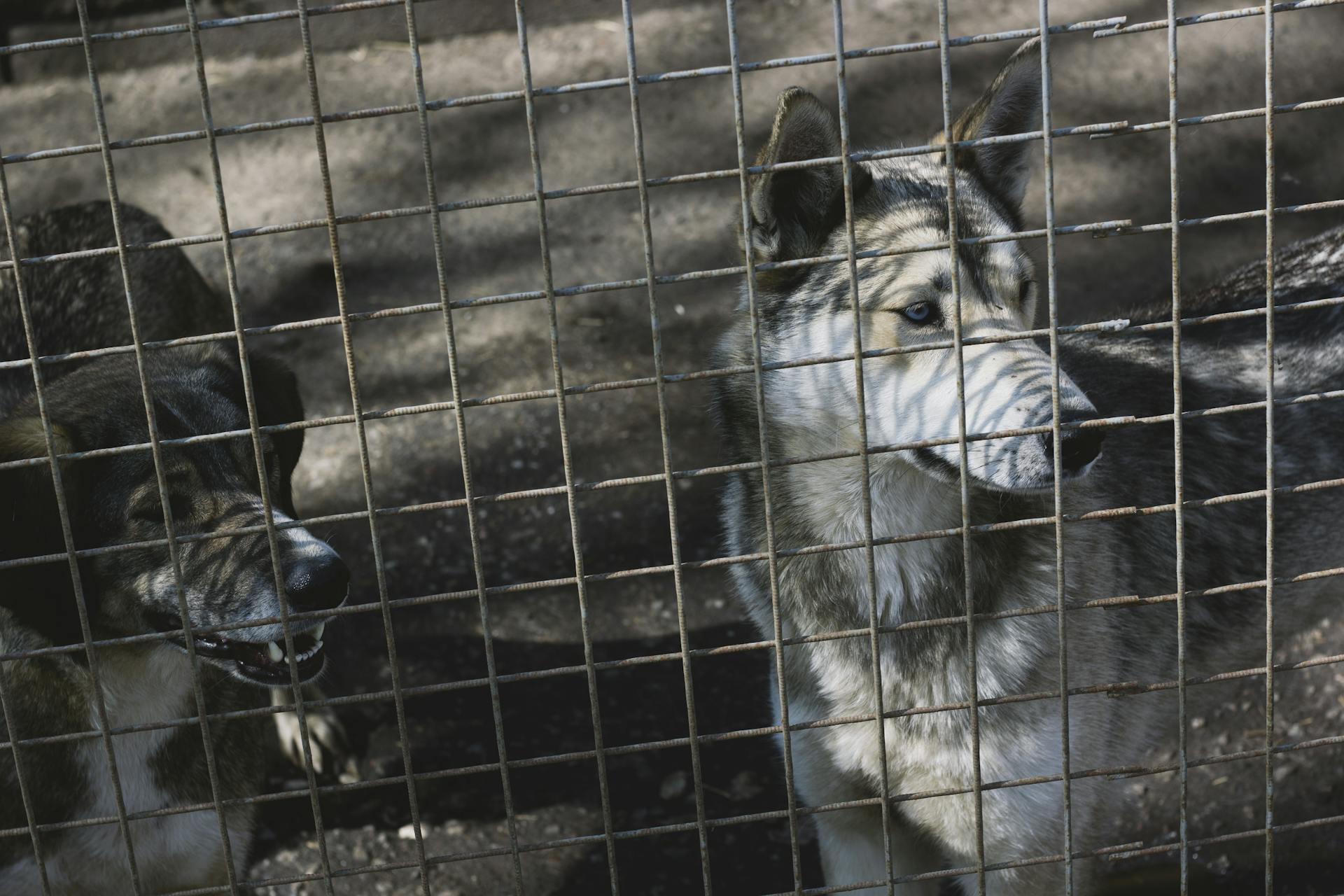
A study at Kyoto University found that dogs watched their owner struggle to open a container, then asked another person for help. Sometimes the person helped, and sometimes they refused. After each interaction, the dog was given the choice whether to accept attention from the other person or ignore them. On turns when the person refused to help the dog's owner, the dog was more likely to show signs of not liking the rude person.
Dogs are highly attuned to social interactions and can pick up on how people treat their owners. If you're consistently kind and respectful to your dog's friends, they'll likely return the favor and be friendly towards you.
Here are some things that might make your dog feel nervous when interacting with others:
- Accessories like hats and sunglasses that obstruct their view of someone's face
- Facial hair, for the same reason
- Being tall
- Deep voice
- Particular body language, especially direct intense eye contact or staring
- Strong smells like smoke
These are just a few things that might make your dog feel uneasy. By being aware of these potential triggers, you can help your dog feel more comfortable and confident when interacting with others.
#5 – Past Trauma
Dogs that have experienced past trauma can be sensitive to certain people or situations, and it's not uncommon for them to develop fears or mistrust. They might cower or become defensive around people who remind them of their difficult pasts.
Rescue dogs, in particular, are more likely to have past trauma, and it can be triggered by various factors such as a person's smell or appearance. If a rescue dog regularly cowers around adult men but turns toward women for comfort, there's a good chance they once suffered abuse at the hand of a man.
Dogs might also develop a general distrust for certain features like gender, hair color, or height, which can be linked to past pain. They might bark at people who remind them of those who mistreated them, and it's essential to recognize these signs to provide the necessary support and care.
Past trauma can spoil even the best-intentioned introductions, and it's crucial to be aware of the potential triggers that might affect your dog's behavior.
Introduction and Training
Obedience training can be very helpful in managing fearful behavior and relieving some of your dog's stress. It's a good idea to work with a certified dog trainer or behaviorist to come up with a plan to deal with your dog's fear of strangers.
A certified dog trainer can approach situations objectively and teach you how to help your fearful pet safely interact in the environment. They can also set up a specific desensitization and training plan to help your dog feel more comfortable.
Finding a certified trainer sooner rather than later is helpful, as they can help prevent aggressive behavior from developing.
Suggestion: Pro Dog Training
Introduction
Some dogs just don't like other dogs. Not one single person likes everyone, and the same is true for canines. Not all dogs are social butterflies, and it's perfectly normal for dogs to have their own preferences. There are dogs that react aggressively if they see another dog from a distance, and some that are friendly to other dogs when they're up close. Dogs can be quite picky about who they like and who they dislike. It can be quite difficult to make sense of all this.
Consider reading: Why Does My Dog Not like Me Sniffing Him?
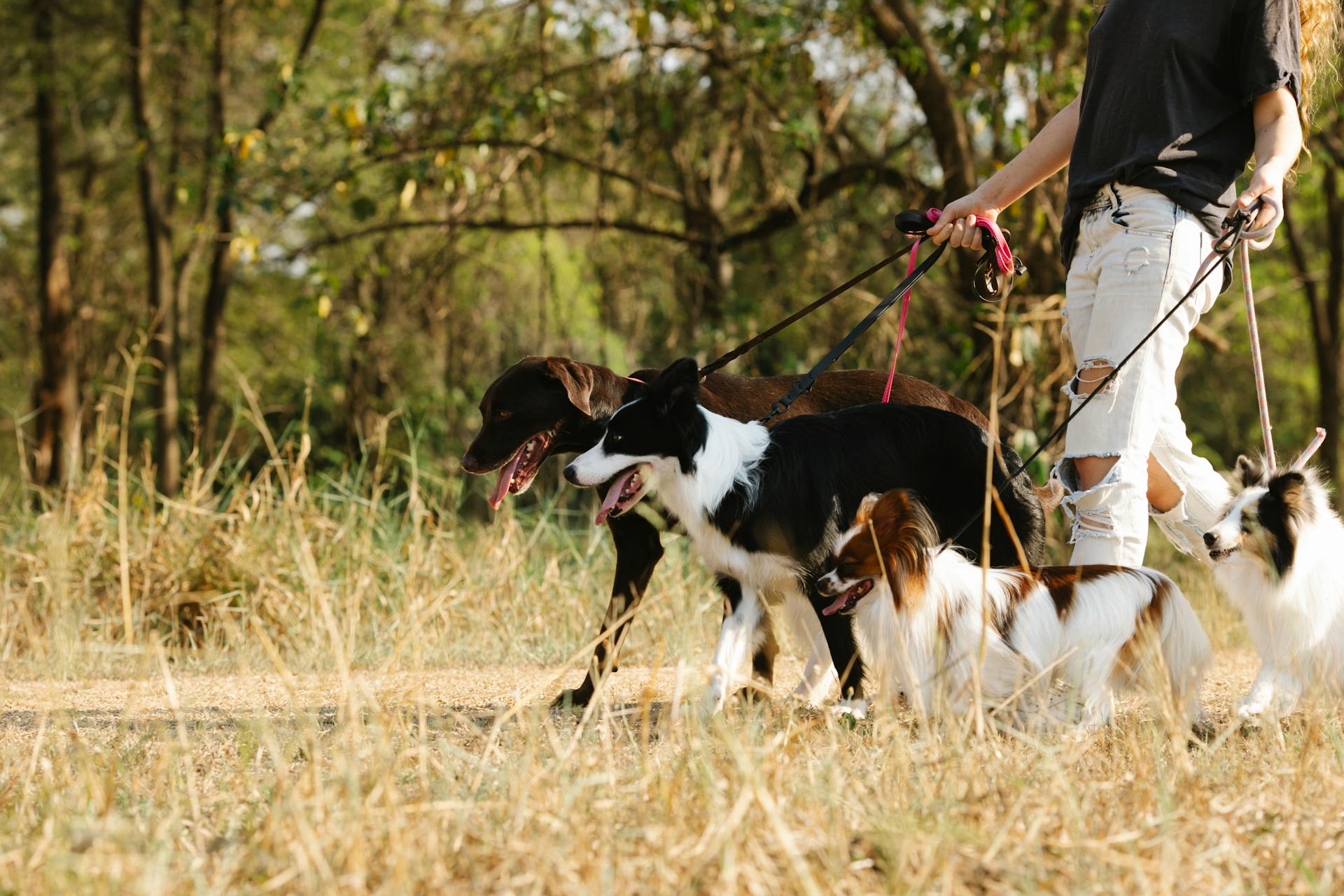
Dogs might notice something they have a negative association with and get defensive. This could be due to bad memories or even a person's smell or appearance. If a dog has been traumatized or abused in the past, it can bark at people who remind them of those who mistreated them. Dogs can develop a general distrust for some specific features like gender.
Obedience Training
Obedience training can be very helpful in managing fearful behavior and relieving some of your dog's stress. Working with a certified dog trainer or behaviorist can be particularly useful, especially if your dog's fear is severe and could lead to aggressive behavior.
A certified dog trainer can help you come up with a plan to deal with your dog's fear of strangers, and can approach situations objectively to teach you how to help your fearful pet safely interact in the environment.
CPDT trainers are a good option because they can provide guidance on how to manage your dog's fear and interact with strangers safely. They may also set up a specific desensitization and training plan to help your dog feel more comfortable.
Some trainers may recommend removing your dog from potential fear-inducing situations, while others may suggest using a wire basket muzzle to limit biting while still allowing your dog to pant and drink water.
Curious to learn more? Check out: What to Do with Your Dog's Ashes?
Sources
- https://www.petfinder.com/dogs-and-puppies/behavior/other-problem-behaviors/dog-hates-men/
- https://www.thesprucepets.com/dogs-and-fear-of-strangers-1117882
- https://wagwalking.com/behavior/why-some-dogs-dont-like-each-other
- https://brightside.me/articles/why-dogs-bark-at-some-people-but-not-at-others-800611/
- https://iheartdogs.com/5-unexpected-reasons-why-dogs-dont-like-certain-people/
Featured Images: pexels.com
